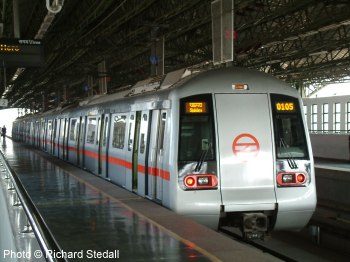Delhi Metro is first-rate but commuters need to catch up
 Delhi Metro is an excellent means of commuting. It has also helped ease traffic congestion on the city’s roads. Thanks to the Metro, Delhi is perhaps the only city in the country where the number of buses has reduced.
Delhi Metro is an excellent means of commuting. It has also helped ease traffic congestion on the city’s roads. Thanks to the Metro, Delhi is perhaps the only city in the country where the number of buses has reduced.
I’ve shot on the London Tube, too, and like to believe that the Delhi Metro is certainly comparable to it — if not better. But I think the Metro’s token system can be improved.
In Hong Kong, they’ve imported the whole system, including the code of conduct for commuters, from London. But that’s not the case in India. We have the best technology, but people certainly do not appreciate it.
For me, hosting a ‘world class’ event is not a big deal. Frankly, I don’t care whether Delhi successfully pulls off the Commonwealth Games. There are bigger challenges that the city and the country as a whole need to overcome.
As far as the home minister’s comment is concerned, I would not like to say anything about it.
I believe Delhi has the potential to become a metropolitan city, but the people populating it seem to have retained their small-town and village background when it comes to the way they act.
In Delhi, it seems people’s behaviour changes from pocket to pocket. For instance, the manners of people in, say, Munirka are completely different from those of people in Vasant Lok.
But, overall, the character of the average Delhiite is essentially extreme. In Bombay, people are more temperate: they don’t swing from one extreme mood to another.
Though Delhi does not seem to have a well-oiled metropolitan machinery, what I’ve learned is that the city has its own positives and negatives.
You can’t afford to be naive in Delhi but people respond to you if you ask the right question in a particular way.
Ali has directed the movies Jab We Met and Love Aaj Kal